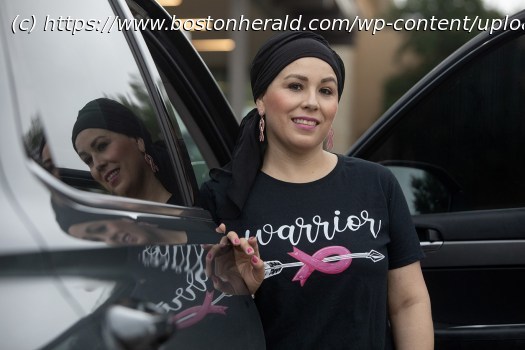In recent years, chemotherapy deserts have expanded across the U.S.
The night before her chemotherapy, Herlinda Sanchez sets out her clothes and checks that she has everything she needs: a blanket, medications, an iPad and chargers, a small Bible and rosary, fuzzy socks, and snacks for the road.
After the 36-year-old was diagnosed with stage 3 breast cancer in December, she learned that there weren’t any cancer services in her community of Del Rio, a town of 35,000 near the Texas-Mexico border.
To get treatment, she and her husband, Manuel, must drive nearly three hours east to San Antonio. So they set an alarm for 4 a.m., which allows for just enough time to roll out of bed, brush their teeth, and begin the long drive navigating dark roads while watching for deer.
About an hour before they arrive at the cancer clinic, the couple pulls over to quickly eat fast food in the car. The break gives Herlinda time to apply ointment on the port where the needle for her chemotherapy will be inserted.
“It numbs the area, so when I get to the infusion room the needle won’t hurt,” she said.
For rural patients, getting cancer treatment close to home has always been difficult. But in recent years, chemotherapy deserts have expanded across the United States, with 382 rural hospitals halting services from 2014 to 2022, according to a report published this year by Chartis, a health analytics and consulting firm.
Texas led that list, with 57 rural hospitals — nearly half of those statewide that had offered chemotherapy — cutting the service by 2022, according to the analysis. Rural hospitals in states like Texas, which hasn’t expanded Medicaid, have been more likely to close, according to data from the Cecil G. Sheps Center for Health Services Research.
To keep the doors open, financially strapped facilities in small communities nationwide continue to shed basic health care services, like obstetrics and chemotherapy, said Michael Topchik, executive director of the Chartis Center for Rural Health.
“The data are staggering,” Topchik said. “Can you imagine feeling that sick, and having to drive an hour in each direction, or maybe more each direction, several times a week?”
Loss of chemotherapy services can signal other gaps in cancer care, such as a shortage of local specialty physicians and nurses, which is bad news for patients, said Marquita Lewis-Thames, an assistant professor at Northwestern University in Chicago whose research covers rural cancer care.
Home
United States
USA — mix Small-town patients face big hurdles as rural hospitals cut cancer care






